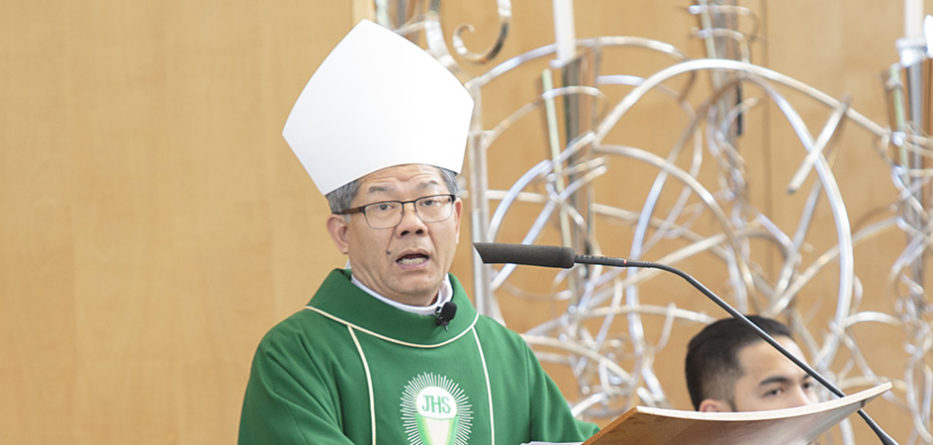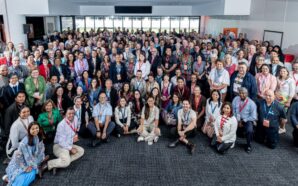Most Reverend Vincent Long Van Nguyen OFM Conv DD STL, Bishop of Parramatta
Homily for the 15th Sunday in Ordinary Time, Year A 2023
Readings: Isaiah 55:10-11; Psalm 64(65):10-14; Romans 8:18-23; Matthew 13:1-23
15 July 2023
Called to be a different people in the world.
Dear sisters and brothers,
It is with great joy and hope that we have come to celebrate yet another new beginning in the life of our parish community. We are well aware that the Church faces daunting challenges as we move into a post-Christian society. Even though we are recovering from the impact of the pandemic, we should be under no illusions about the need to stay alert to the signs of the times and to align our hearts and minds to the guidance of the Holy Spirit.
We must, therefore, be willing to embrace the pattern of dying and rising again: Dying to that which hinders our mission and rising to that which Christ calls us to be. Our numbers and resources might diminish. But the most important task at hand is that we learn to live the Gospel afresh. We learn to be true “leaven and salt” to the world. Pope Francis has reminded us time and again that the Church is not a museum. It is not in yearning for or holding on the familiar but in reimagining the future and venturing into the unknown chaos like the old Exodus that we shall find new life.
Scriptures on this 15th Sunday in Ordinary Time summon us to a way of living and witnessing in the world that requires a radical orientation. The God of our ancestors in faith does not shield us from the ebbs and flows of history. But neither does he remain unmoved by our changing fortunes. He leads us and empowers us to move beyond our fears to live a life of faith, hope, love and service. In Jesus, he calls us and forms us into living embodiment of the God who cares for his people.
In the first reading, Isaiah calls his people to an authentic living of the Covenant in the unsettling and demoralising period of the exile. They were confused and lost as they struggled to cope with the loss of their collective identity, which was rooted in such concrete symbols as the land, the monarchy, the temple and the rituals. It was in this context that Isaiah attempted to reformulate their faith. He speaks today about the importance of God’s word. It is the living of the Covenant that defines their unique identity and not those physical symbols that they were yearning for.
God’s word that Isaiah exhorts the people to live was not yet codified in the Bible as we know it today. It would have been transmitted to them through the teachings of Moses such as the Decalogue and the Shema which is the daily prayer calling them to worship and love God. It is a basis of an alternative way of life and a model society as they gave witness to the God of love, justice and compassion.
In the Gospel, Jesus taught his disciples a new way of living through the parable of the sower. It warns us against a kind of superficial living that seeks short-term gains and successes. This is what the parable of the sower refers to when it uses the image of the seeds falling on patches of rock or those smothered by thorn bushes. Superficial living happens when our concerns are no more than skin deep; or when our goals and commitments are short-lived.
The Gospel points us to the whole new way of living and relating to others. It is a paradigm of love and service as opposed to the way of individualism and self-interest. When we operate out of Jesus’ new paradigm, faith transforms us into humble servants of the kingdom. When the word finds a generous response in our hearts, there is no limit to the riches of God’s love and grace that can be channelled to the world around us.
Ultimately, what Jesus teaches today is that despite all things to the contrary, God’s plan will not fail. When we fail, we are still children of God. When our world fails, it is still God’s beloved creation that is being redeemed. Our hope is not attached to results and successes. It is rooted in the life, suffering, death and resurrection of Jesus. This paschal pattern challenges us to embrace vulnerability not invincibility, communion not dominion and downward mobility and not upward mobility.
Dear sisters and brothers,
The Word of God this Sunday calls us to be a different people in the world. Our Jewish ancestors were challenged to interiorise the Covenant and to live by its power. Isaiah’s call to his people to live by the living word as opposed to the imperial system requires courage and commitment. Paul in the second reading reminds us of God’s redemptive plan at work in all creation. The parable of the sower is a summons to live a fruitful life by way of responding to the generosity of God.
Let us, then, endeavour to be a model community as we are called to be. Let us strive to be a place where everyone experiences the divine hospitality, kindness and generosity. In a world of fear and the circle of sharing is off limit to the poor, we are called to be a Church without borders, a tent that admits even the untouchables and a society that mirrors God’s inclusive embrace.
Let this new beginning be the opportunity for us to deepen our sense of being an oasis of hope, a place where God’s care and compassion reaches out to all people. May we follow the example of our ancestors in faith by our worship and embodiment of the God of love, justice and compassion.








